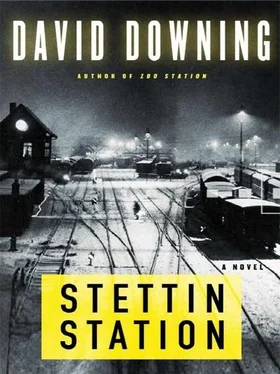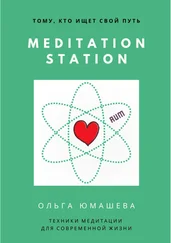David Downing - Stettin Station
Здесь есть возможность читать онлайн «David Downing - Stettin Station» весь текст электронной книги совершенно бесплатно (целиком полную версию без сокращений). В некоторых случаях можно слушать аудио, скачать через торрент в формате fb2 и присутствует краткое содержание. Жанр: Шпионский детектив, на английском языке. Описание произведения, (предисловие) а так же отзывы посетителей доступны на портале библиотеки ЛибКат.
- Название:Stettin Station
- Автор:
- Жанр:
- Год:неизвестен
- ISBN:нет данных
- Рейтинг книги:3 / 5. Голосов: 1
-
Избранное:Добавить в избранное
- Отзывы:
-
Ваша оценка:
- 60
- 1
- 2
- 3
- 4
- 5
Stettin Station: краткое содержание, описание и аннотация
Предлагаем к чтению аннотацию, описание, краткое содержание или предисловие (зависит от того, что написал сам автор книги «Stettin Station»). Если вы не нашли необходимую информацию о книге — напишите в комментариях, мы постараемся отыскать её.
Stettin Station — читать онлайн бесплатно полную книгу (весь текст) целиком
Ниже представлен текст книги, разбитый по страницам. Система сохранения места последней прочитанной страницы, позволяет с удобством читать онлайн бесплатно книгу «Stettin Station», без необходимости каждый раз заново искать на чём Вы остановились. Поставьте закладку, и сможете в любой момент перейти на страницу, на которой закончили чтение.
Интервал:
Закладка:
Here it comes, Effi thought.
'Have you ever met the Fuhrer?' the woman asked.
'Only once,' Effi admitted. 'He was charm itself.'
Fifteen minutes later she was back in the Wertheim's cubicle. After changing back into her normal clothes, she sat on the toilet seat and applied some of the new make-up with the aid of her compact mirror. Satisfied, she let herself out and headed for the U-Bahn, remembering just in time to age her walk. The train was crowded and smelly, but one young soldier insisted on giving her his seat, and when she finally closed the apartment door behind her she felt a quiet surge of triumph.
On Christmas evening, Felix came to tell Russell that a Swedish ship was due in port in less than forty-eight hours. Two days later, the small patch of sky outside his window was beginning to darken when the hotel owner entered with a thin young man named Rainis.
When Russell saw the bicycle, he realised that he'd been half-expecting another ride in the back of a van. 'I haven't been on one of these for twenty years,' he muttered, mostly to himself. With his bag tied on the back, he climbed gingerly into the saddle. A quick shake of Felix's hand, and he was off, wobbling down the street in Rainis' wake.
The two-kilometre journey to the docks took them around the eastern edge of the city centre, and Russell was left with an impression of towers and spires faintly silhouetted against a rapidly darkening sky. There was virtually no traffic, and a Mercedes 260 parked by the side of the road turned out to be empty. By the time they reached the docks all natural light had disappeared, but Riga, unlike Stettin, was still making full use of the artificial variety. Open warehouse doors were squares of bright yellow light, the cranes beyond them lit from below.
There were other cyclists about, and several lorries parked with their lights on. Rainis led Russell away from the lights, the two of them bumping across cobblestone setts and between buildings to reach a dark section of the quayside. Further down the basin a freighter was tied up, the name Norma emblazoned on its stern. The sea air was freezing cold.
'That's your boat,' Rainis whispered.
Russell could see at least two uniforms near the bottom of the gangplank.
'That's all they guard,' the young Latvian said, reading his mind. 'You'll be using the port side.'
Leaning the bicycles against a convenient wall, they walked on down the quayside, keeping close to the buildings until the Norma was several hundred metres behind them. After one long look back and a check of his watch, Rainis struck out across the wide quay, reaching the edge at the point where a flight of concrete steps led down to the water, and a tethered rowing boat lay gently bobbing in the tide. The young Latvian sitting in the bow looked anxious, but managed a smile of welcome as Russell clambered aboard. He quickly engaged the oars. Rainis, it seemed, was not coming.
Russell waved his thanks, wedged the bag between his knees, and suddenly remembered that he'd left the gun under his pillow back at the hotel. One for the Resistance.
His oarsman was taking the long way round, rowing out beyond the reach of the quayside lights until the Norma provided its own shadow. This should have been Stettin, Russell thought, with Effi there beside him.
There were no signs of activity on the seaward side of the freighter, which boded well. The apparent lack of a ladder, or any other means of getting himself aboard, was less auspicious; but the oarsman, seeing his confusion, first used two hands to mime a climbing motion, then one to indicate something dropping from the sky. A few moments later the rope ladder landed a few feet away from them, and a short whistle sounded above.
With one hand on the rope and one holding his bag, Russell struggled up the side of the ship, conscious of every scuff and bang which accompanied his laborious progress. He was almost at the top when a strong hand reached down to help him over the railing. As he regained his feet, a grinning young man put a finger to his lips, then pointed off to the right.
Russell nodded his understanding, and followed the man. Judging by the noise, the rear hold was still being loaded, but work had finished on the yellow-lit foredeck, with only the hatches to fasten. Emerging from the shadow of the superstructure, the Swede settled into a crouching walk reminiscent of Groucho Marx, and Russell duly followed him to the edge of the open hold. The Swede pointed his finger once more, this time at an iron ladder leading down. Russell nodded, and swung himself onto the top rung.
The man whispered one word – 'Midnight' – and disappeared from view.
Russell climbed down into the darkened hold, stopping when one foot encountered something solid and allowing his eyes time to adjust. A room full of dark rectangles suggested several layers of packing cases, a theory soon confirmed by touch. He worked himself into a corner, where he hoped he could not be seen by someone looking in. Once the hatches were down he would climb back on top of the cases to lessen the risk of being crushed.
How long, he wondered, would the voyage take? He should have asked Rainis.
An hour or so later the hatches were fastened, and the darkness became complete. Even an overcast, blacked-out Berlin had offered more in the way of visibility.
Another anxious hour followed, before the sudden rumbling of the ship's engines had him almost trembling with relief. A few more minutes and they were underway. Russell felt the change as they left the docks for the river, and wondered if he would feel another as they left the river for the bay.
He was lying across two crates, eyes closed, when he became aware of a slight shift in the light. A faint square had appeared in the ceiling above him, a square that was swiftly filled by movement. Someone was descending into the hold.
Whoever it was reached the bottom and switched on a torch. Russell shielded his eyes against the blinding light.
'Sorry,' a voice said, first in Swedish and then in English. 'But safe now. You come out. I take you to captain. You understand?'
'I do,' Russell said.
'I say I find you. Stowaway, yes. Captain a good man. But I lose job if he know I help you. I am Olle,' he said, extending a hand.
The captain's English was even better. He listened to Russell's fictional account of how he had stowed aboard with a slightly amused expression, and warned him that he would be handed over to the appropriate authorities when they reached Stockholm. They would be out in the open Baltic all the next day, he added, and Russell could make himself useful by joining the standing watch. An extra set of eyes might just save them all from a Russian torpedo. 'Now you can take him for some food,' he told Olle. 'He looks like he needs it.'
The galley chef had long since gone to his bunk, but Olle found some meatballs and potatoes to warm up. They tasted better than anything Russell had eaten since the summer. Neutrality obviously had its advantages.
A deep and dreamless sleep was interrupted by the call of duty, and a short hot breakfast was followed by two long shifts scanning the cold, rolling and almost empty Baltic. The only ships he saw were far away – German destroyers most likely, heading across the freighter's stern towards the Gulf of Leningrad.
That evening he played cards with several of the crew. No one asked him any questions, and the war was only mentioned in passing. All the talk was of girlfriends and wives, food and football, the sexiest bars in Helsinki.
He thought about that the following morning, as the lights of a country at peace brightened on the Swedish shoreline. He might be safe, but his escape had cost more than he could ever repay. Hans and Margarete Otting, the two comrades in the Kaiser Bar – they would be in concentration camps by now, if they hadn't already been executed. Strohm might have evaded the Gestapo swoops in Berlin, but Russell doubted whether Ernst or Andreas would long survive the unravelling of the network in Stettin.
Читать дальшеИнтервал:
Закладка:
Похожие книги на «Stettin Station»
Представляем Вашему вниманию похожие книги на «Stettin Station» списком для выбора. Мы отобрали схожую по названию и смыслу литературу в надежде предоставить читателям больше вариантов отыскать новые, интересные, ещё непрочитанные произведения.
Обсуждение, отзывы о книге «Stettin Station» и просто собственные мнения читателей. Оставьте ваши комментарии, напишите, что Вы думаете о произведении, его смысле или главных героях. Укажите что конкретно понравилось, а что нет, и почему Вы так считаете.












